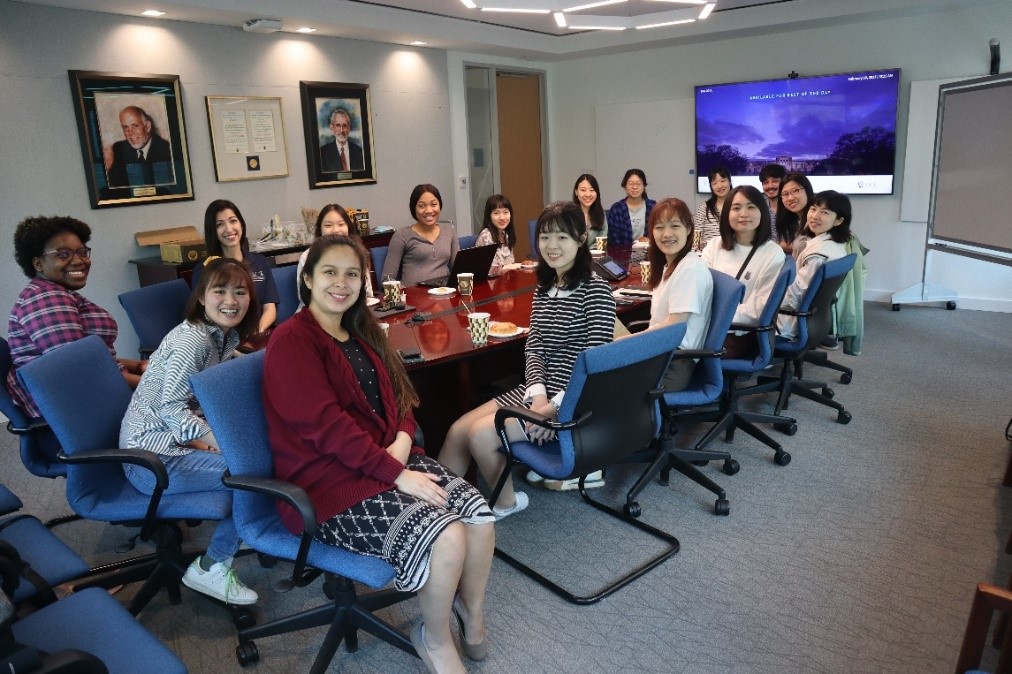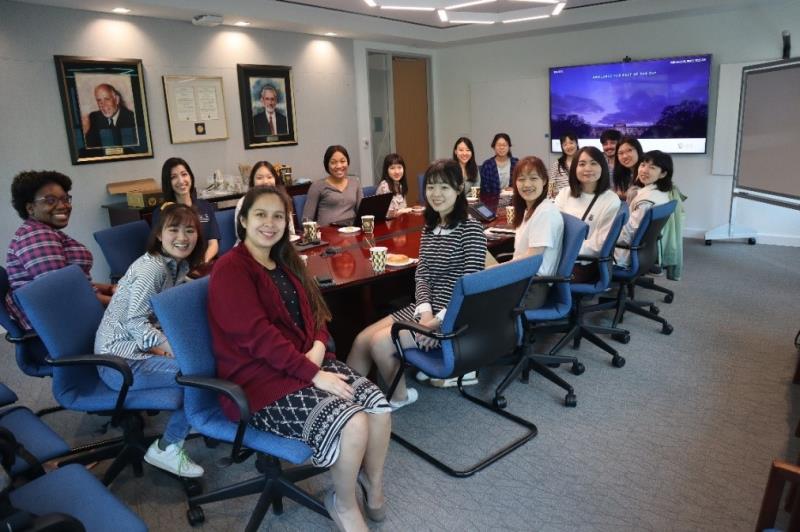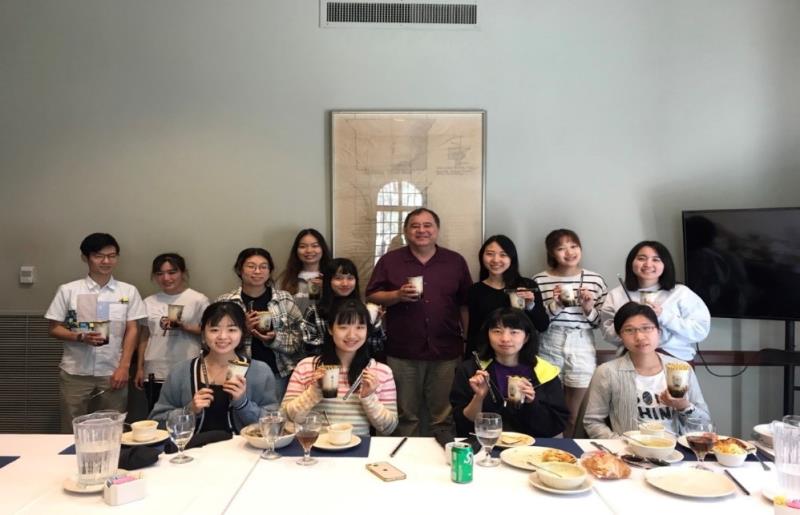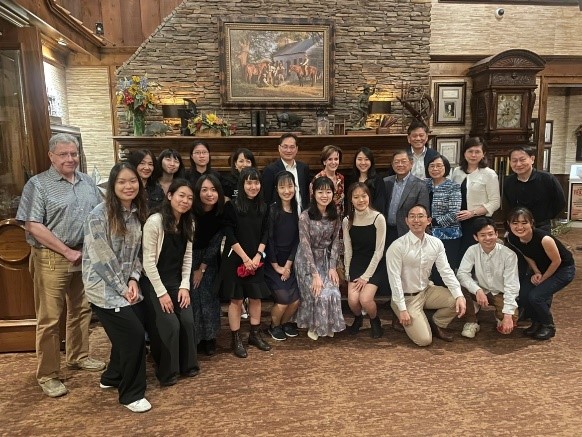Women in STEM Program at Rice University - Cooperation between the US, Japan, and Taiwan

Five students from National Taiwan University and National Chung-Hsing University enjoyed an incredible opportunity to participate in the Female STEM @ Rice University-MACHI program. This is a five-week short-term research and internship program held at Rice University in Houston, Texas. Dr. Junichiro Kono, Chair of the Department of Applied Physics at Rice University led all the students taking the program on a visit to TECO in Houston. The group received a warm welcome from Director-General Robert Lo and Andrea Yang, Director of the Education Division.
Dr. Kono initially created the TOMODACHI (Japanese for "friends") program, sponsored by the U.S.–Japan Council, for excellent female Japanese students to visit and do an internship at Rice University and at Lehigh University in Pennsylvania in 2016. The success of the TOMODACHI program led to a call for a similar program for students in Taiwan, in 2020. Soon after, the MACHI (Japanese for "good friends") program was launched, with much support from the Greater Houston community. Its aim is to enhance female students’ research experience and understanding of the U.S. higher learning environment, particularly in STEM fields.
Students taking the TOMODACHI and MACHI programs live and study together under the supervision of American faculty and researchers. These programs provide the female students with unique research and internship opportunities to broaden the scope of their academic horizons. Rice University also invited the students to attend the Women in STEM Panel Discussion. This is designed for women to share experiences unique to women in STEM and promote camaraderie among the attendees and the panelists.
These programs reflect a goal shared by the United States, Japan, and Taiwan—to have more women participating in STEM fields—and they are examples of how educational exchanges are one way to go about achieving gender equity in education. The TOMODACHI and MACHI programs celebrate young women who have chosen to dedicate their academic and business careers to STEM and help spur them on to achieve greater heights.
The Taiwanese students also received funding support from the Ministry of Education's Study Abroad program (學海計畫). They are working in various fields with various majors, including biomedical engineering, physics, biotechnology, and mechanical engineering. They have worked on different lab projects, ranging from fabrication and optimization of lenses to photo-thermal control and single-photon emission – a diverse and immensely talented array of interests and applications. They greatly appreciated the opportunity to study at Rice University through the MACHI program and are determined to become accomplished scientists in the future.



